Alfred Leland Crabb
Teacher, mentor, essayist, historian, novelist, and poet, Alfred Leland Crabb (1884-1979) was a leading figure at Peabody College for more than half a century. In his later years he became an eminence of the college, greatly admired within its walls, and known beyond them for his novels, public talks, and works on local history.
Born and raised in a small community in Warren County, Kentucky, Crabb trained as a teacher at the university in Bowling Green and held school teaching positions before coming to study at Peabody College. He was, in 1914, among the first students at the current Peabody campus. He took his doctorate at Peabody in 1925 and returned—to stay—in 1927 as a Professor of Education.
For the rest of his life, Crabb would be closely linked with Peabody College. In fact, in the mid–twentieth century, perhaps no one was so identified with Peabody in the eyes of the public. He lived with his wife Bertha in a house on 18th Avenue, near campus. For decades he edited the Peabody Journal of Education, where his editorials appeared regularly, and he was a frequent contributor to the Peabody Reflector. When Peabody College celebrated its sesquicentennial in 1935, Crabb wrote its commemorative history. And he was a gifted teacher and mentor to generations of Peabody students, dedicated to the teaching art and to the professional training of teachers.
He would also become (despite his Kentucky roots) a leading citizen of Nashville, and one of its preeminent chroniclers. Crabb found Nashville full of charm and interest, and he spoke and wrote about its history often. His 1960 book Nashville: Personality of a City gives a thorough and admiring account of the culture and history of his adopted hometown.
Yet for all this, Crabb was best known as a writer of historical novels—twelve of them—all of them set in Kentucky or Tennessee, all in the time of the Civil War or the early pioneer days. See this page for information about his novels.
A feeling for the present-ness of the past pervades Crabb’s work. In the middle of the twentieth century, he looked backward to the nineteenth, drawing not only from his own memory, but from the cultural memory of school, city, and region to create work of local interest and lasting value. “How gracious is memory,” he would write; it is “the precious ingredient by which life resolves its continuity.” As Vanderbilt University celebrates its sesquicentennial, it remembers one who contributed so much to the life of its most ancient tributary, Peabody College.
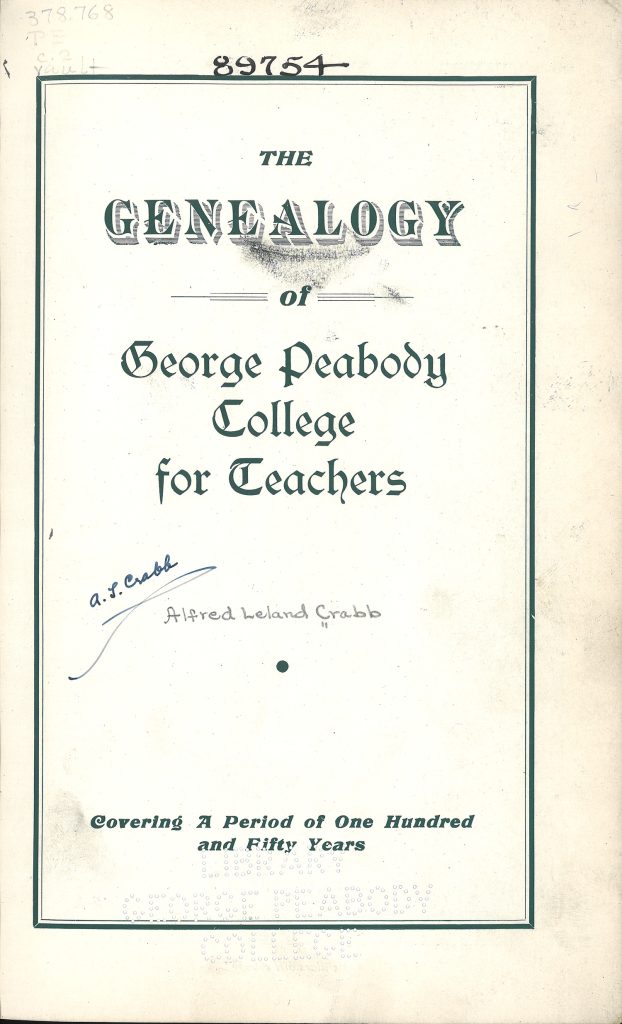
1935
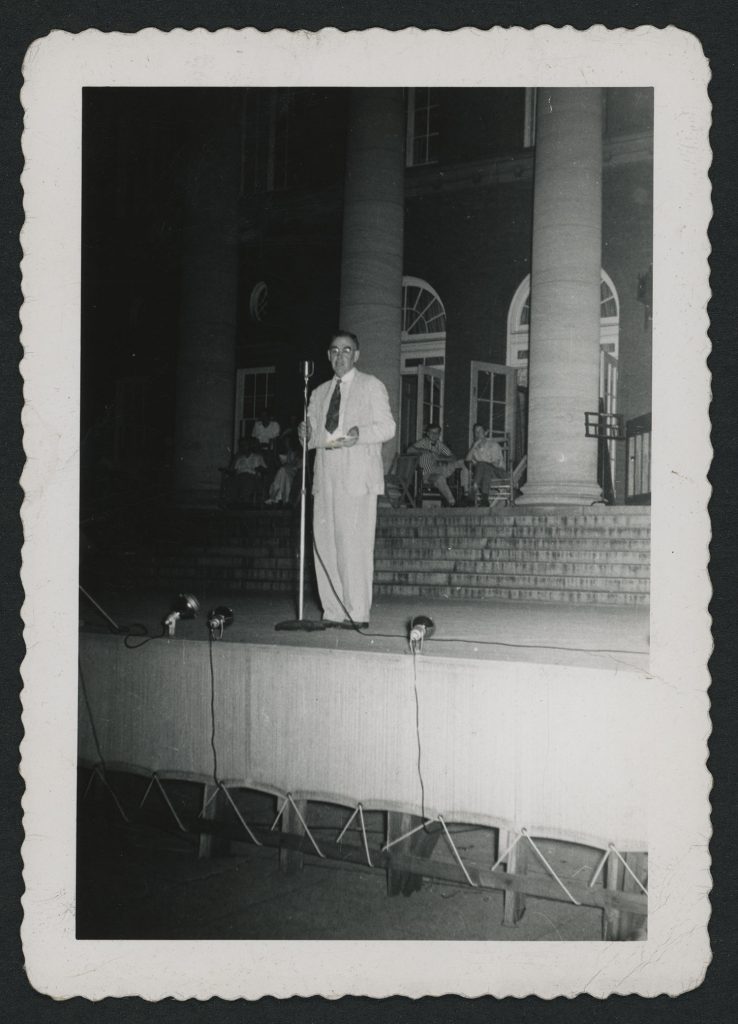
Undated
Alfred Leland Crabb Papers
Peabody College Archives
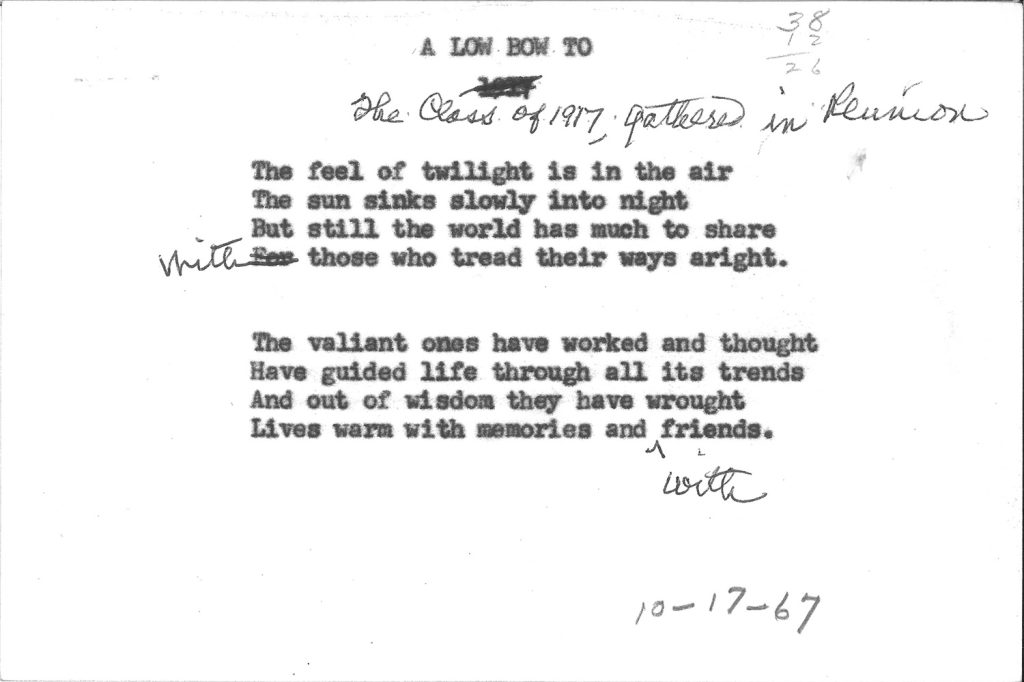
1967
Alfred Leland Crabb Papers
Peabody College Archives
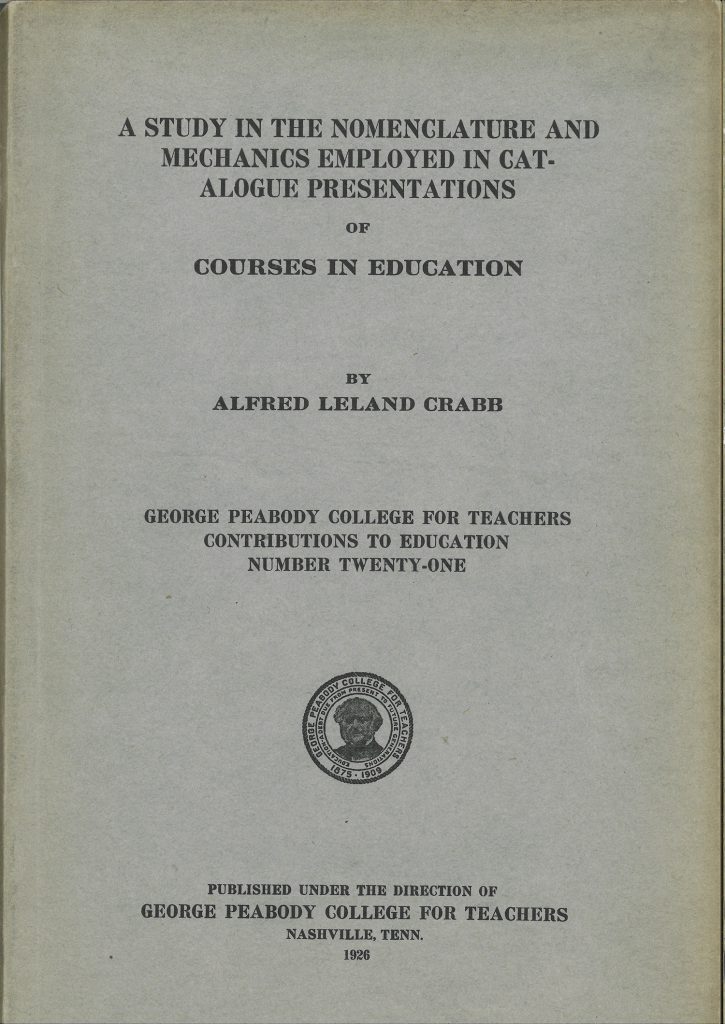
[George Peabody College for Teachers dissertation]
1926

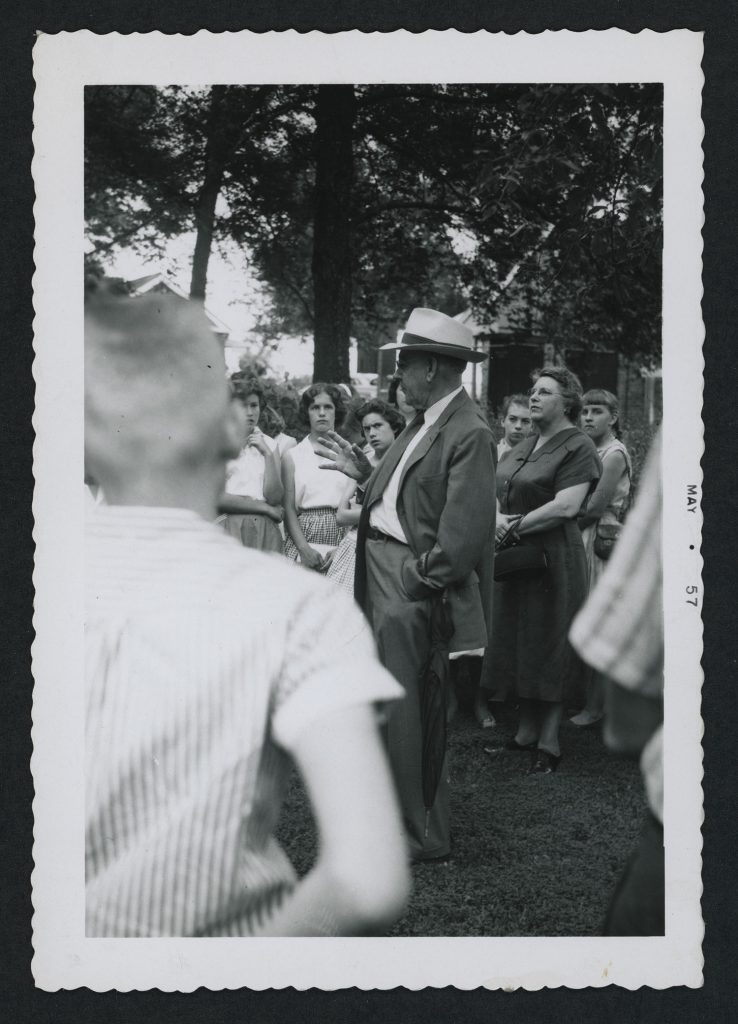
Circa 1950s
Alfred Leland Crabb Papers
Peabody College Archives
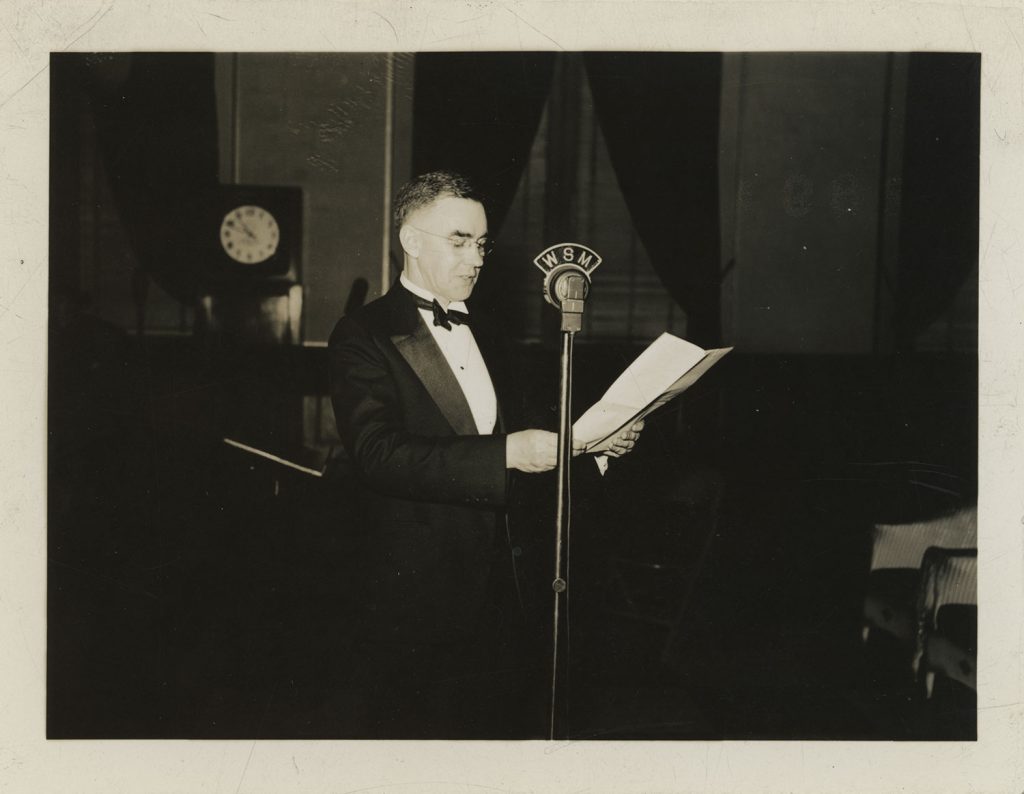
Circa 1940s
Alfred Leland Crabb Papers
Peabody College Archives
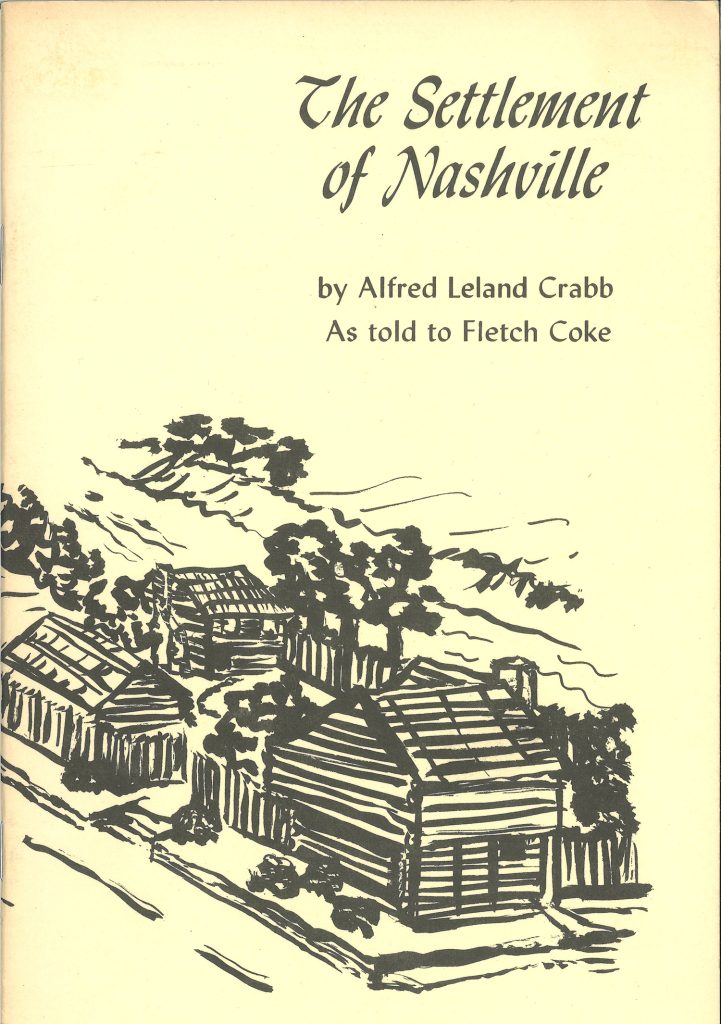
Historical Commission of Metropolitan Nashville and Davidson County, 1974
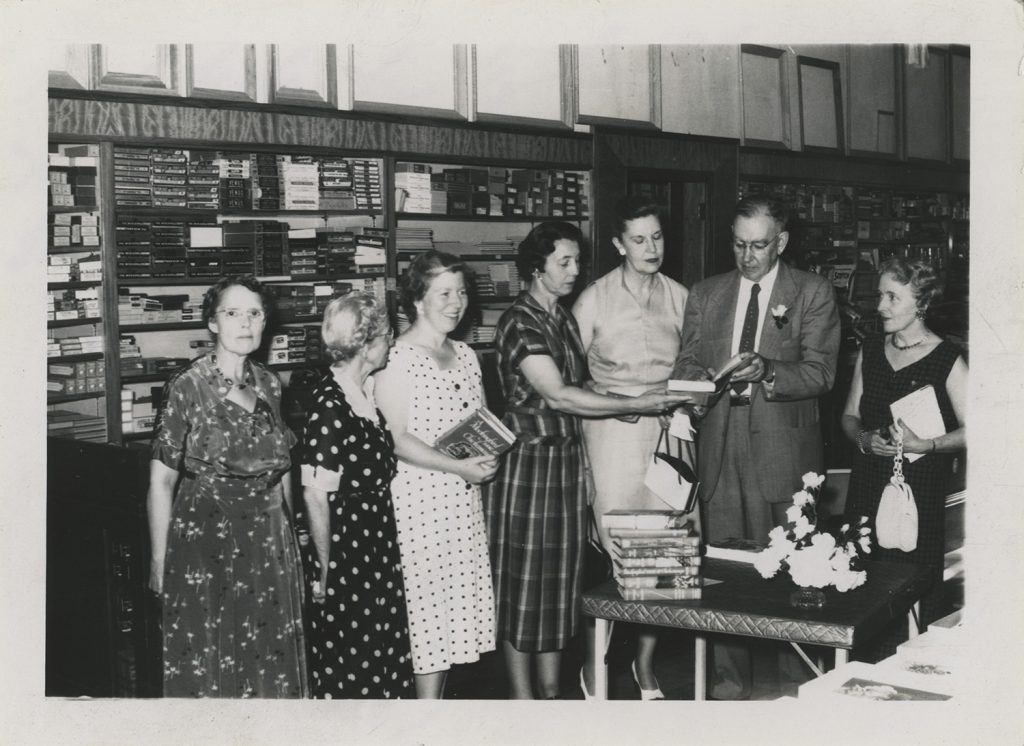
Circa 1950s
Alfred Leland Crabb Papers
Peabody College Archives
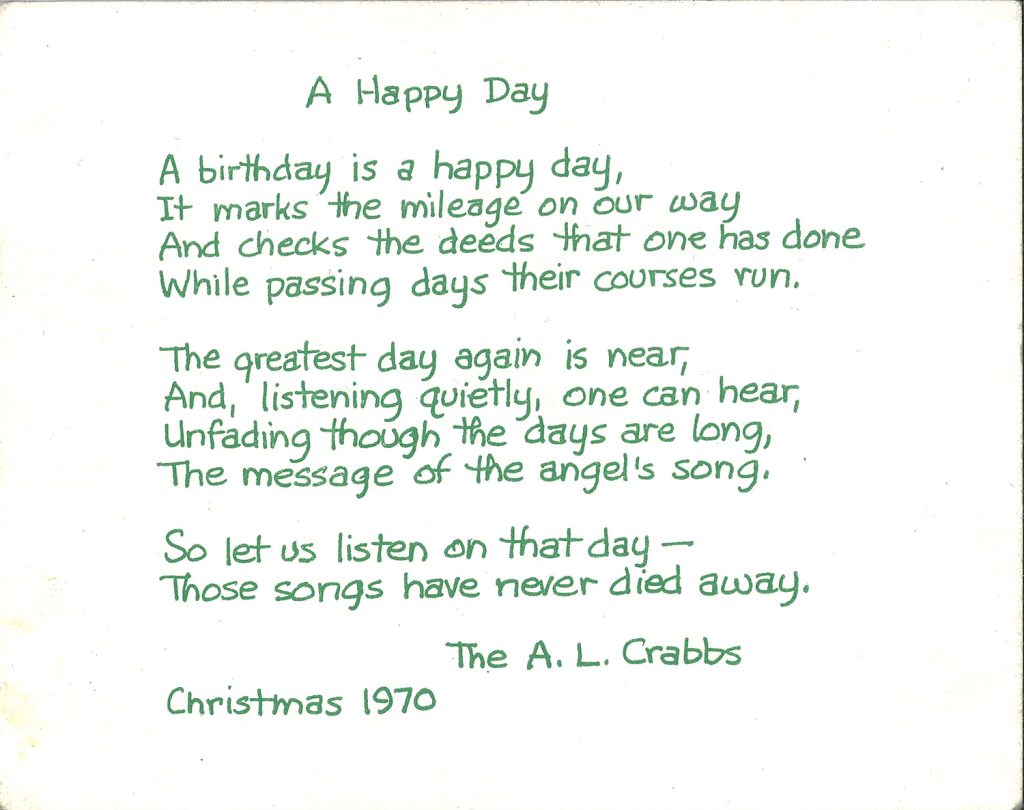
1970
Alfred Leland Crabb Papers
Peabody College Archives
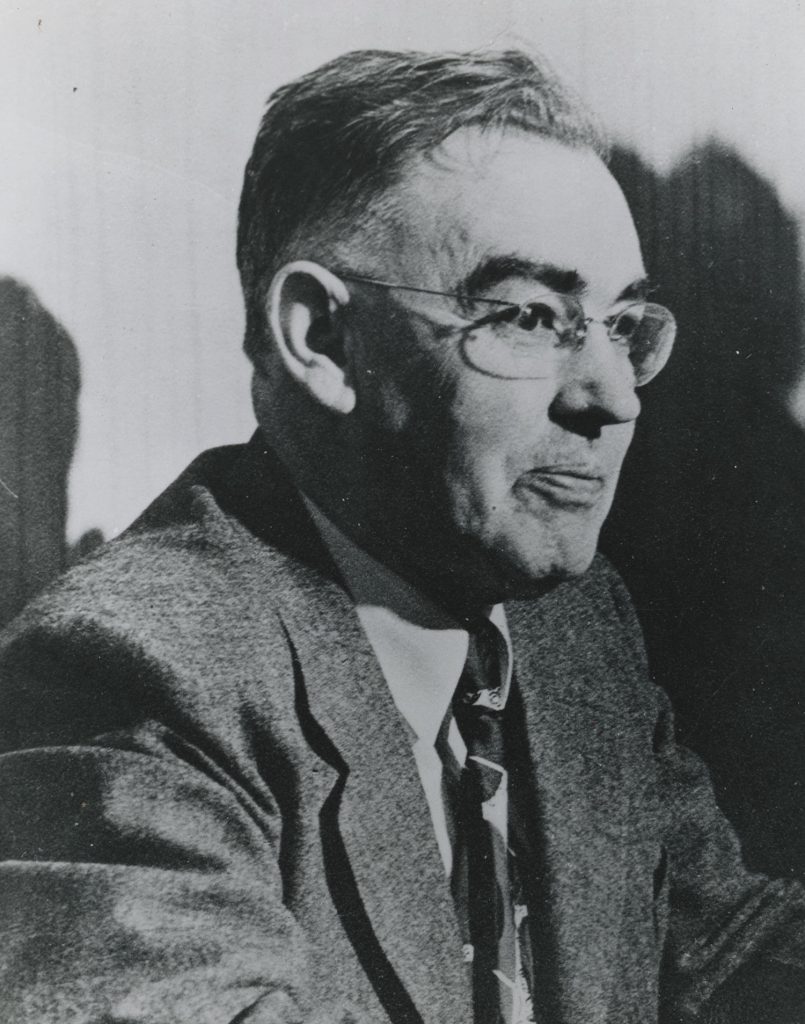
Undated
Alfred Leland Crabb Papers
Peabody College Archives
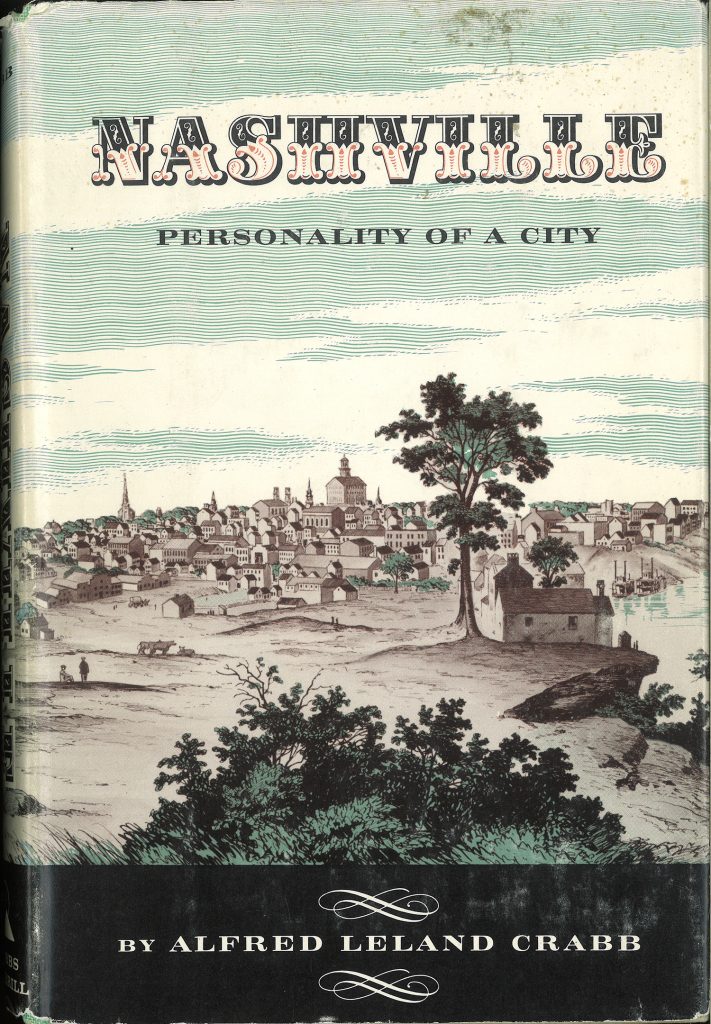
Bobs-Merrill, 1960
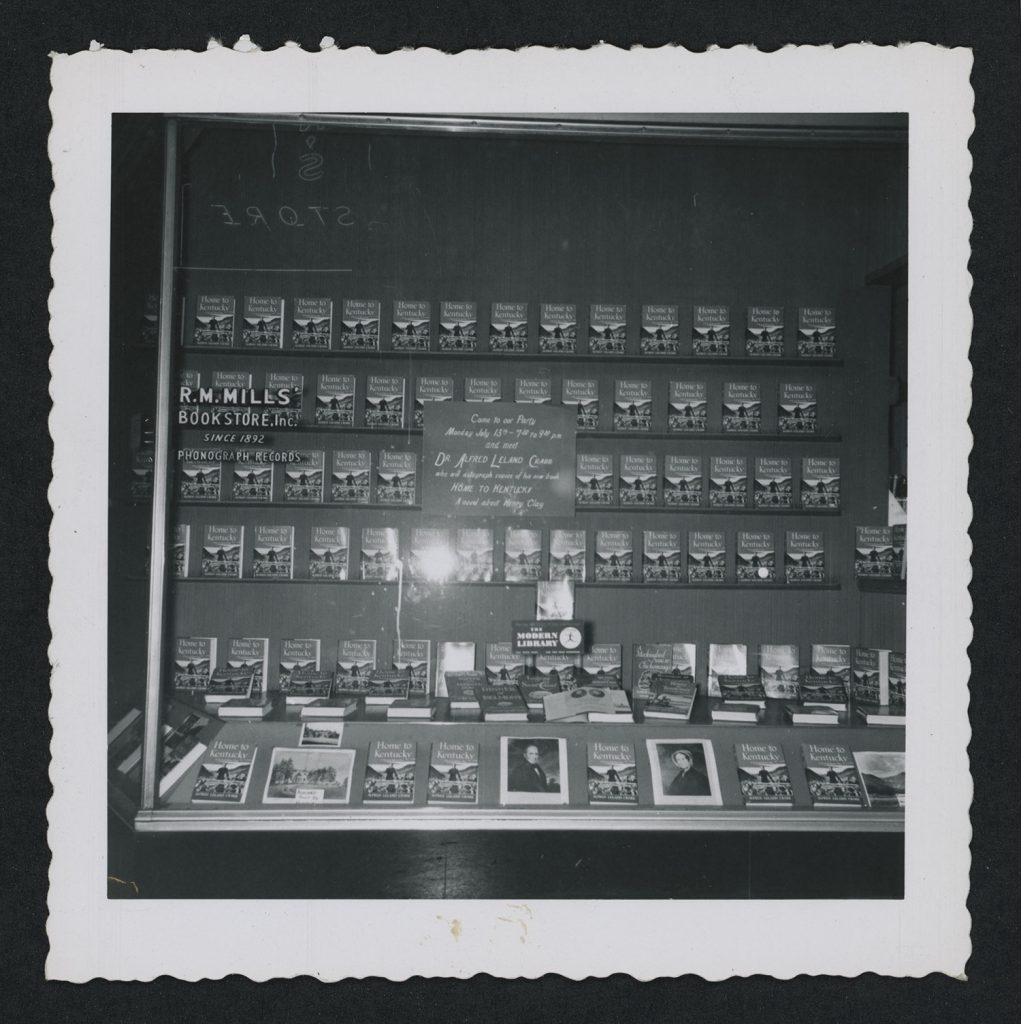
Nashville, 1953
Alfred Leland Crabb Papers
Peabody College Archives
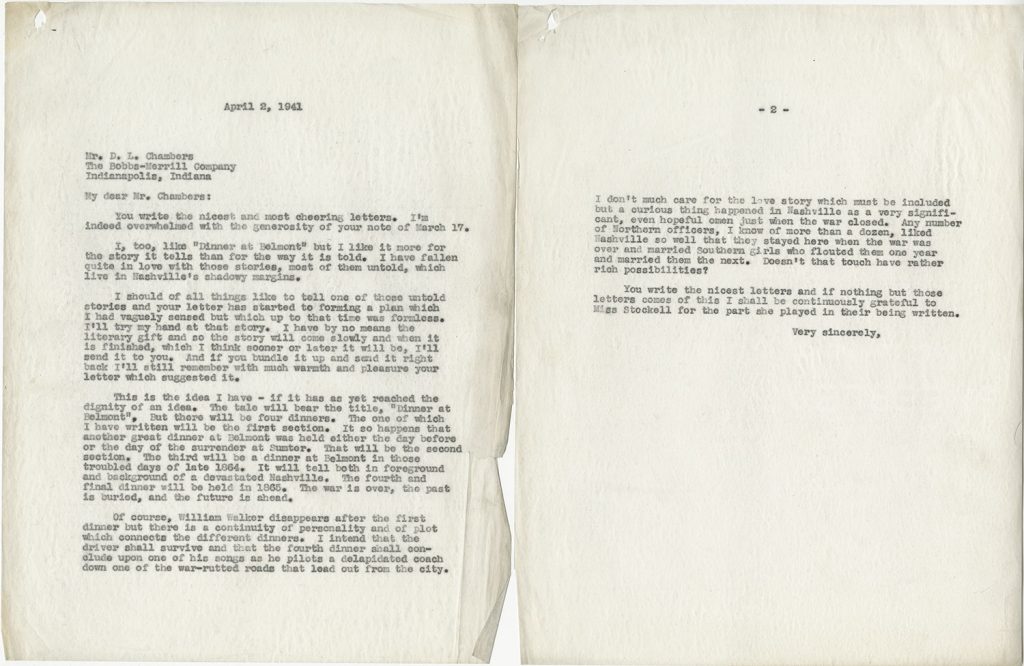
April 2, 1941
Alfred Leland Crabb Papers
Peabody College Archives
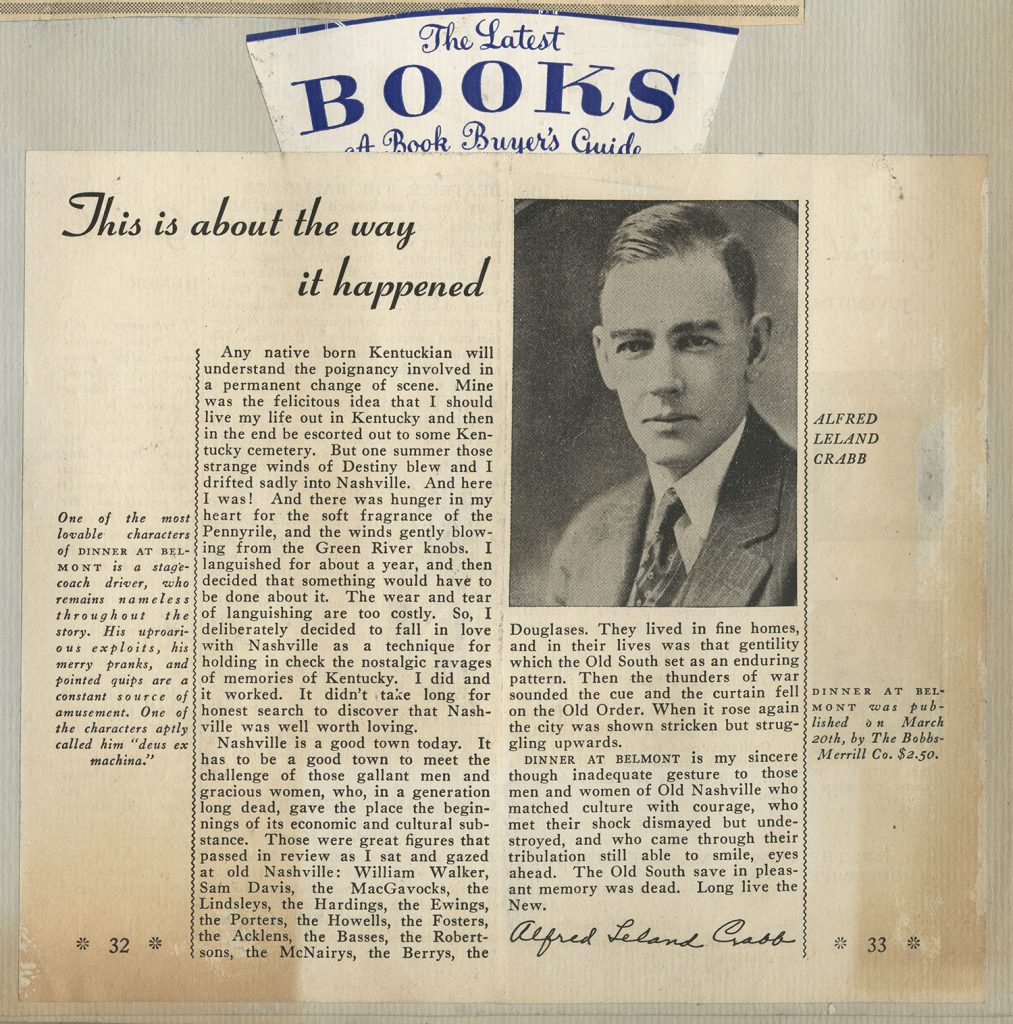
1942
Alfred Leland Crabb Papers
Peabody College Archives
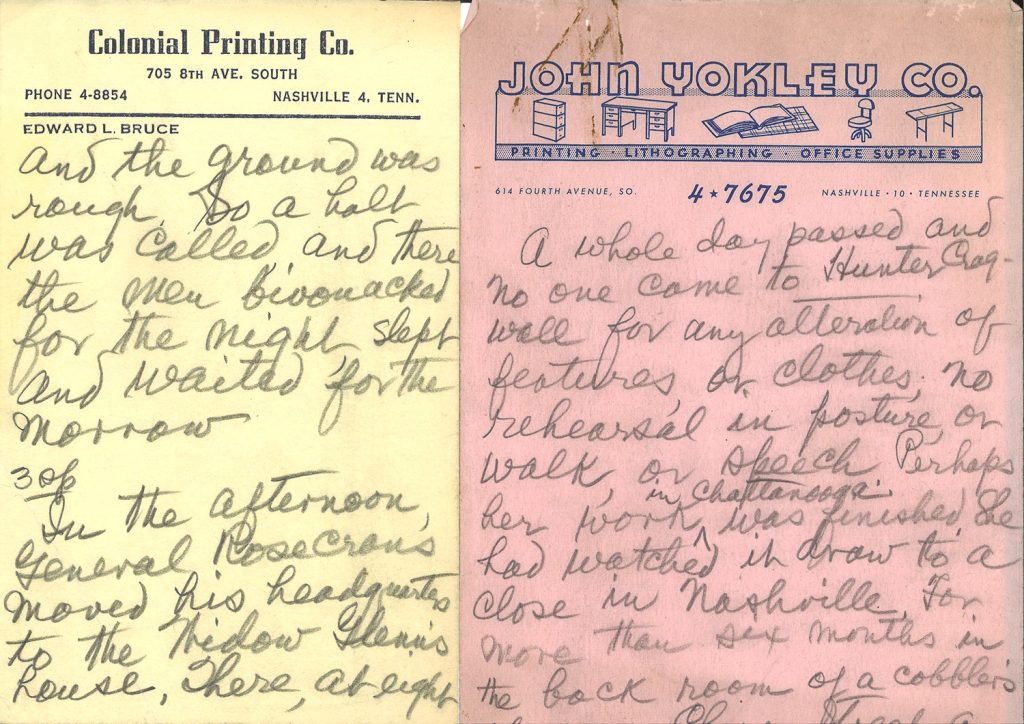
Undated
Alfred Leland Crabb Papers
Peabody College Archives
